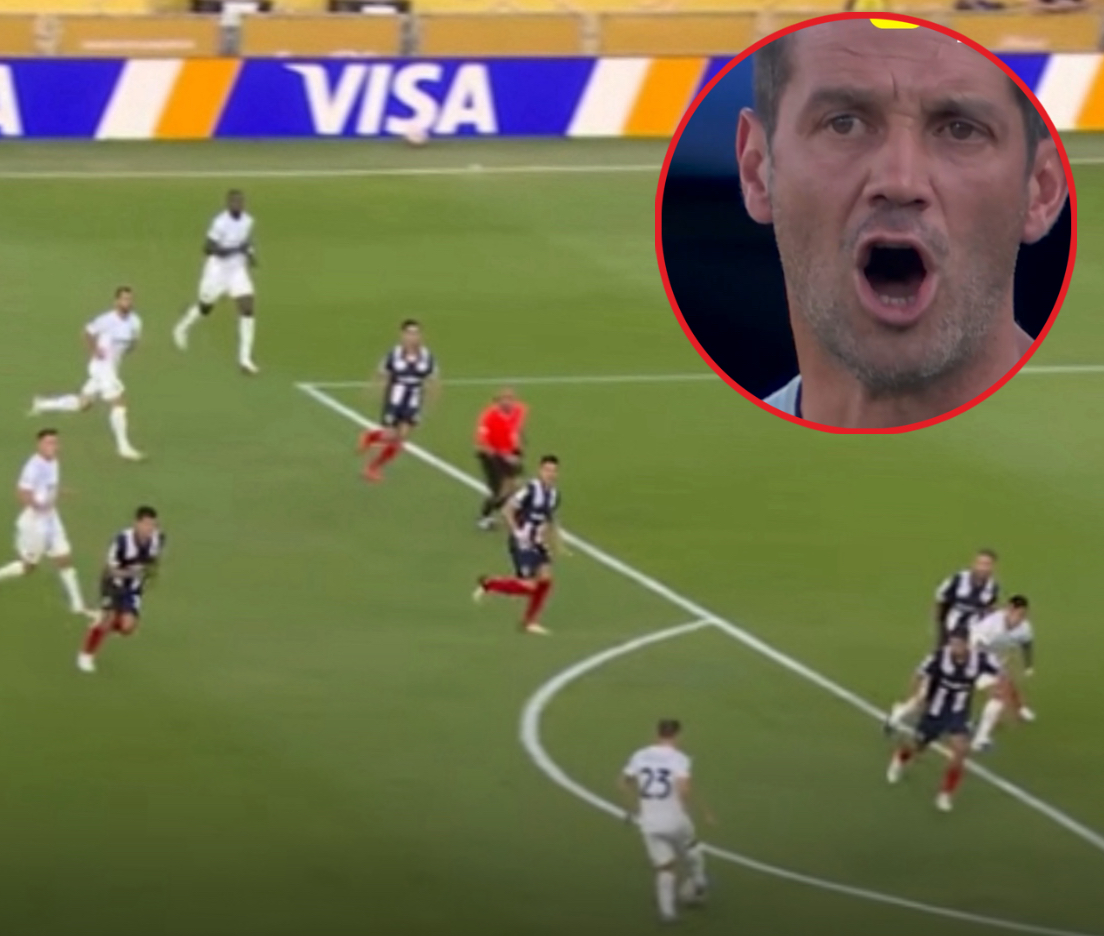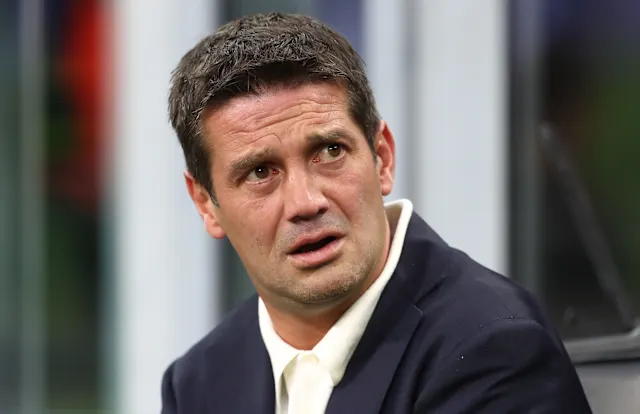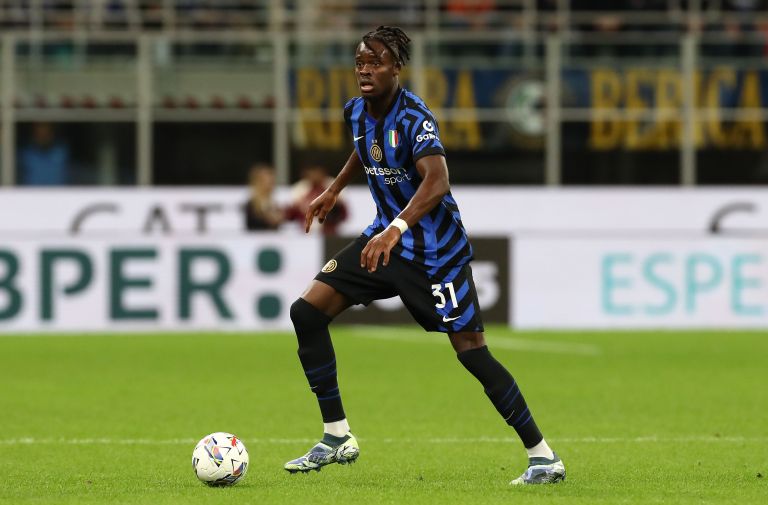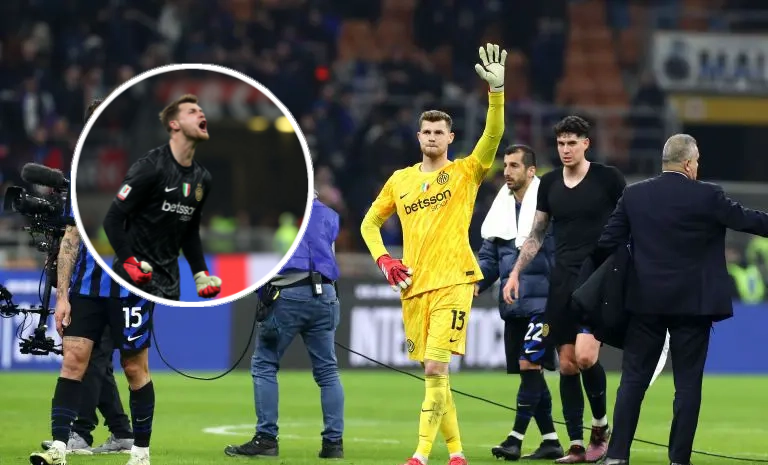I TIFOSI SOSTENGONO CHE IL LORO GIOCATORE PREFERITO NON POTRÀ GIOCARE NELLA PROSSIMA PARTITA
In a match that was meant to signal Inter Milan’s intent at the FIFA Club World Cup, the Italian giants were instead held to a frustrating 1-1 draw by Mexican side Monterrey, sparking fan outrage, tactical scrutiny, and the emergence of one unlikely scapegoat: 22-year-old forward Sebastiano Esposito.
Across social media platforms, fan forums, and post-match pundit panels, the consensus became startlingly clear: Sebastiano Esposito “absolutely can’t start” in Inter’s next game. The backlash against the young forward has been swift and unforgiving, with many supporters accusing him of squandering key opportunities, failing to link up with teammates, and looking completely out of depth on one of the world’s biggest stages.
But is the criticism justified? Or is the Inter fan base simply projecting their frustrations onto a player who may have been set up to fail?
A Flat Performance in a High-Stakes Match
Coming into the Club World Cup, Inter Milan—under new head coach Cristian Chivu—had high hopes of making a definitive statement. As European representatives, expectations were lofty. Monterrey, while a respected side in North American football, were widely perceived as underdogs in this encounter. But from the opening whistle, it was clear that Inter would not have things their way.
Despite dominating possession for long spells, Inter failed to turn control into conviction. And while Lautaro Martínez’s second-half goal gave fans brief hope, Monterrey’s equalizer and Inter’s overall sluggishness cast a shadow over the result.
Front and center in the blame game was Sebastiano Esposito.
Esposito’s Underwhelming Display
Esposito was given a surprise start by Chivu, with many expecting Alexis Sánchez or even Valentin Carboni to be chosen ahead of the young striker. Yet, in a crucial match where every action counted, the 22-year-old forward delivered a performance that critics have branded “invisible,” “immature,” and even “damaging.”
Key points of criticism include:
- Poor ball retention: Esposito lost possession 9 times in just 65 minutes before being substituted. Several of these led directly to Monterrey counterattacks.
- Lack of chemistry: Esposito looked out of sync with attacking counterparts Lautaro Martínez and Federico Dimarco, with multiple misplaced passes and miscommunications halting promising moves.
- Decision-making under pressure: Perhaps the most frustrating moment came in the 52nd minute, when Esposito opted to shoot from an impossible angle rather than square the ball to a wide-open Nicolò Barella, who was storming into the box.
For many Inter fans, that moment epitomized what’s wrong with Esposito: an eagerness to impress that clouds his judgment in crucial moments.
Fan Reaction: “He Cannot Start Again”
Social media erupted in the hours following the match, with hashtags like #EspositoOut and #ChivuWhatAreYouDoing trending among Inter supporters on X (formerly Twitter) and Instagram.
A popular Inter Milan fan account posted:
“Sebastiano Esposito absolutely cannot start the next match. Not at this level. It’s too important. We love giving chances to young players but not at the expense of winning.”
Another supporter wrote:
“I don’t care how highly Chivu rates him—this isn’t a preseason tour, it’s the Club World Cup. That performance was shambolic.”
Others were less measured, accusing Chivu of favoritism or suggesting that Esposito’s inclusion was a political move linked to his Italian nationality or his agent’s influence within the club.
Cristian Chivu Under Pressure
While Esposito bore the brunt of the fan fury, head coach Cristian Chivu hasn’t escaped criticism either. The former defender, recently promoted from the Inter Primavera setup, is already facing questions about his tactical decisions, man management, and whether he’s ready to lead a senior squad with such massive expectations.
His post-match interview—cut short after a tense exchange with a journalist questioning Esposito’s selection—only fueled the controversy. Chivu reportedly left the press area after being asked, “Would you still start Esposito if you had to win tomorrow?”
The coach’s blunt response—“If you knew anything about football, you wouldn’t ask that”—has done little to calm the fanbase.
The Burden of Potential
Esposito has long been seen as one of Inter Milan’s most promising academy graduates. After a sparkling debut season at just 17, he was loaned out to a series of clubs—SPAL, Venezia, FC Basel, and Anderlecht among them—but never truly found his footing. A return to Inter last season saw him mostly play backup to Lautaro and Marcus Thuram, with scattered substitute appearances.
Chivu, who coached Esposito during his Primavera days, is believed to be one of his staunchest supporters. Insiders say the coach sees him as a “project player” who, with proper development, could eventually take over the main striker role. But after his display against Monterrey, those hopes appear more distant than ever.
Squad Options: Who Could Replace Him?
With Inter needing a win in their next Club World Cup group game to ensure qualification to the knockout stage, fans are urging Chivu to turn to other options:
- Alexis Sánchez may no longer be in his prime, but he brings composure and experience to high-stakes matches.
- Valentin Carboni, the 20-year-old Argentine playmaker, has shown flashes of brilliance and is arguably more tactically disciplined than Esposito.
- Davy Klaassen, though more of a midfielder, could be pushed forward into a false nine role if Chivu decides to go with a more possession-heavy approach.
One fan poll conducted by SempreInter showed that 87% of supporters want Esposito dropped for the next match, with only 4% believing he deserves another chance.
The Bigger Picture: What Does This Mean for Esposito’s Future?
For Sebastiano Esposito, the fallout from this match could have lasting consequences. If Chivu drops him in the next game, it may signal a demotion in the pecking order, especially with younger talents like Carboni rising fast. On the other hand, if he starts and underperforms again, it could irreparably damage his confidence and relationship with the supporters.
Esposito’s case highlights the broader challenge of integrating academy talents into elite squads: balancing development with accountability. While mistakes are expected, consistent underperformance—especially in crucial fixtures—is often met with little patience in clubs with Inter’s ambitions.
Conclusion: Turning Point or Tipping Point?
Inter Milan’s draw against Monterrey wasn’t a disaster, but it exposed cracks in the squad’s depth and decision-making. At the heart of the criticism lies Sebastiano Esposito, a player both blessed and burdened by early promise, now fighting not just for minutes—but for relevance.
With the next match looming, all eyes will be on Chivu’s lineup. Will he stick by his former youth prodigy? Or will he heed the call of the fans and make the hard choice?
For now, the message from the Inter faithful is deafening: Esposito can’t start. Not again. Not like this.








Post Comment